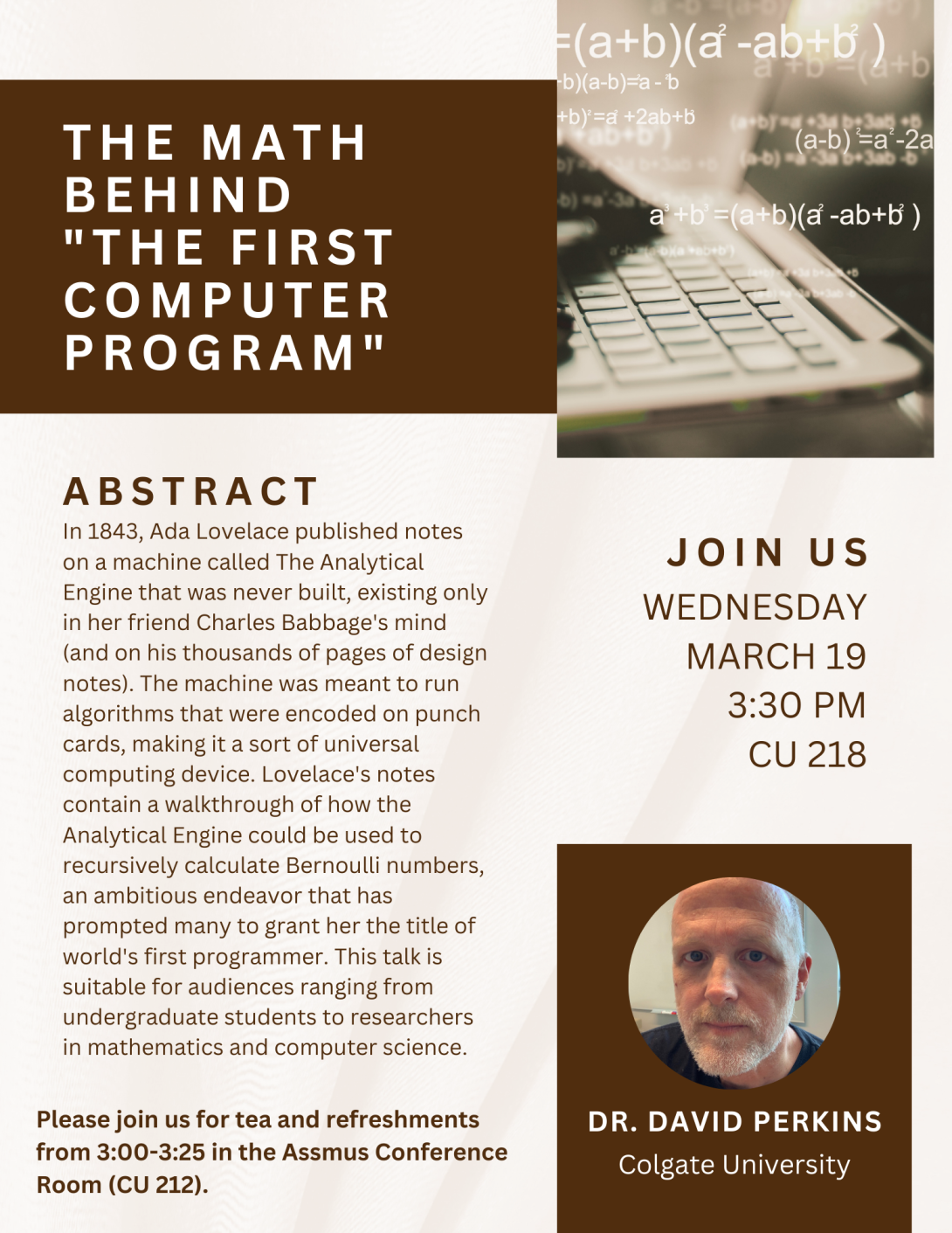The math behind "the first computer program"
David Perkins, Colgate University
Abstract: In 1843, Ada Lovelace published notes on a machine called The Analytical Engine that was never built, existing only in her friend Charles Babbage's mind (and on his thousands of pages of design notes). The machine was meant to run algorithms that were encoded on punch cards, making it a sort of universal computing device. Lovelace's notes contain a walkthrough of how the Analytical Engine could be used to recursively calculate Bernoulli numbers, an ambitious endeavor that has prompted many to grant her the title of world's first programmer. This talk is suitable for audiences ranging from undergraduate students to researchers in mathematics and computer science.
Tea and refreshments available at 3:00 p.m. in the Assmus Conference Room (CU 212).

